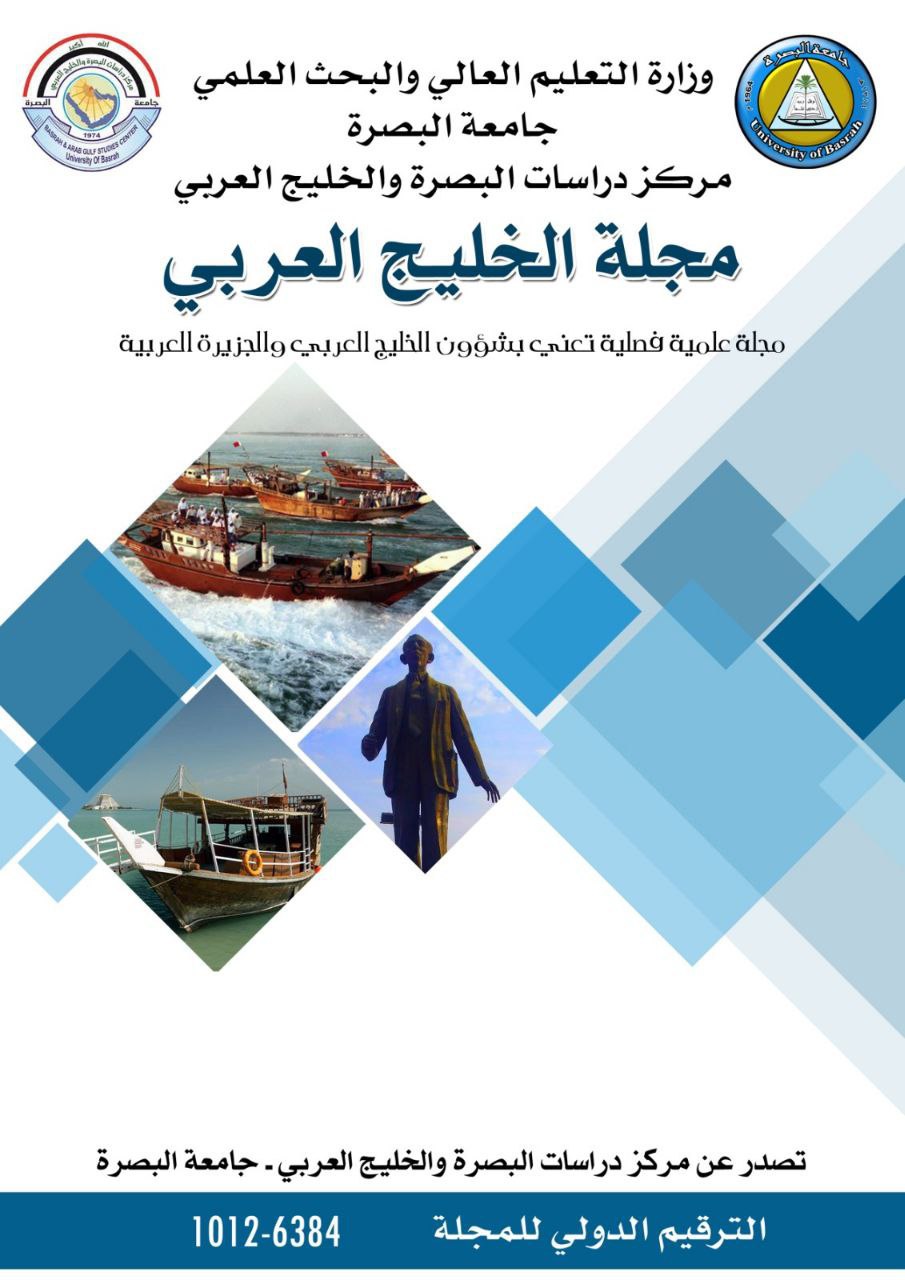Abstract
Several essential factors contributed to establishing and maintaining balanced political, economic, and diplomatic relations between Iran and India. The two countries grew closer through numerous bilateral agreements. When India gained independence in 1947, a new situation emerged in the Indian subcontinent, with its effects spreading to parts of West Asia, including Iran.
Iranian-Indian relations experienced periods of tension and development depending on internal and external circumstances; however, they remained largely stable. Notable aspects of these relations included trade, navigation, and import-export agreements, which positively impacted their sustained cooperation despite political differences over Pakistan. India recognized the importance of convincing Iran of the need to maintain their bilateral relationship, emphasizing that traditional friendship should not be hindered by any obstacles. This realization led to diplomatic exchanges and official visits, including presidential meetings.
External factors also played a role in strengthening ties, such as Iran’s support for India during the 1962 Sino-Indian War, where Iran openly backed India. Furthermore, education fostered a mutual understanding and internal awareness in both nations, highlighting the importance of economic development and mutual cooperation. This understanding emphasized economic integration and paved the way for robust Iranian-Indian relations focused on mutual development and true partnership.
Iranian-Indian relations experienced periods of tension and development depending on internal and external circumstances; however, they remained largely stable. Notable aspects of these relations included trade, navigation, and import-export agreements, which positively impacted their sustained cooperation despite political differences over Pakistan. India recognized the importance of convincing Iran of the need to maintain their bilateral relationship, emphasizing that traditional friendship should not be hindered by any obstacles. This realization led to diplomatic exchanges and official visits, including presidential meetings.
External factors also played a role in strengthening ties, such as Iran’s support for India during the 1962 Sino-Indian War, where Iran openly backed India. Furthermore, education fostered a mutual understanding and internal awareness in both nations, highlighting the importance of economic development and mutual cooperation. This understanding emphasized economic integration and paved the way for robust Iranian-Indian relations focused on mutual development and true partnership.
Keywords
India.
Iran
Key words: relations
Abstract
أسهمت عوامل ضرورية عدة بإقامة وتأسيس علاقات متوازنة في المجالات السياسية والاقتصادية والدبلوماسية بين إيران والهند وأصبح كل منهما أقرب للآخرمن خلال توقيع وإبرام الكثير من الاتفاقيات الثنائية، فعندما استقلت الهند عام1947 تطور وضع جديد في شبه القارة الهندية وتشظت آثاره وانتشرت إلى بعض دول غرب آسيا وبضمنها إيران .
وقد اتسمت العلاقات الإيرانية الهندية بالفتور في بعض الأحيان والتطور أحياناً أخرى بحسب المرحلة التي مرت بها تلك العلاقات من أوضاع داخلية وتأثيرات خارجية إلا أنها استمرت بثباتها إلى حد كبير، وكانت من المعالم البارزة اتفاقيات التجارة والملاحة والاستيراد والتصدير. وهذا ما أثر إيجاباً على ترسيخ تلك العلاقات من خلال الاستمرار في التعاون الاقتصادي على الرغم من الخلافات السياسية حول باكستان. لقد أدركت الهند ضرورة إقناع إيران باستمرار العلاقات الثنائية بينهما ولا ينبغي أن تتوقف هذه العلاقات أو يقف في طريقها ما يهدد الصداقة التقليدية، وهذا ما أفضى إلى تبادل الزيارات الدبلوماسية الرسمية وعلى مستوى الرؤوساء، كذلك كان للعامل الخارجي دور في التقارب الإيراني الهندي المتمثل في دعم إيران للهند خلال حربها مع الصين عام1962 التي وقفت فيها إيران بقوة وبصراحة إلى جانب الهند. فضلاً عن ذلك فقد أرسى التعليم مبادىء التفاهم بين البلدين وأسهم بوجود وعي جديد على المستوى الداخلي بين الطرفين. وهذا الأمر يتعلق بعمليات التنمية الاقتصادية التي سلطت الضوء على عنصر التكامل الاقتصادي وفتحت الآفاق المتمثلة بالتعاون الكبير من أجل التنمية المتبادلة وإقامة صحيحة للعلاقات الإيرانية – الهندية .
وقد اتسمت العلاقات الإيرانية الهندية بالفتور في بعض الأحيان والتطور أحياناً أخرى بحسب المرحلة التي مرت بها تلك العلاقات من أوضاع داخلية وتأثيرات خارجية إلا أنها استمرت بثباتها إلى حد كبير، وكانت من المعالم البارزة اتفاقيات التجارة والملاحة والاستيراد والتصدير. وهذا ما أثر إيجاباً على ترسيخ تلك العلاقات من خلال الاستمرار في التعاون الاقتصادي على الرغم من الخلافات السياسية حول باكستان. لقد أدركت الهند ضرورة إقناع إيران باستمرار العلاقات الثنائية بينهما ولا ينبغي أن تتوقف هذه العلاقات أو يقف في طريقها ما يهدد الصداقة التقليدية، وهذا ما أفضى إلى تبادل الزيارات الدبلوماسية الرسمية وعلى مستوى الرؤوساء، كذلك كان للعامل الخارجي دور في التقارب الإيراني الهندي المتمثل في دعم إيران للهند خلال حربها مع الصين عام1962 التي وقفت فيها إيران بقوة وبصراحة إلى جانب الهند. فضلاً عن ذلك فقد أرسى التعليم مبادىء التفاهم بين البلدين وأسهم بوجود وعي جديد على المستوى الداخلي بين الطرفين. وهذا الأمر يتعلق بعمليات التنمية الاقتصادية التي سلطت الضوء على عنصر التكامل الاقتصادي وفتحت الآفاق المتمثلة بالتعاون الكبير من أجل التنمية المتبادلة وإقامة صحيحة للعلاقات الإيرانية – الهندية .
Keywords
الكلمات المفتاحية: العلاقات – إيران – الهند .
